

US moves to force ByteDance to sell TikTok
source link: https://www.semafor.com/article/04/23/2024/us-senate-moves-to-force-bytedance-to-sell-tiktok
Go to the source link to view the article. You can view the picture content, updated content and better typesetting reading experience. If the link is broken, please click the button below to view the snapshot at that time.
US Senate moves to force ByteDance to sell TikTok
US moves to force ByteDance to sell TikTok
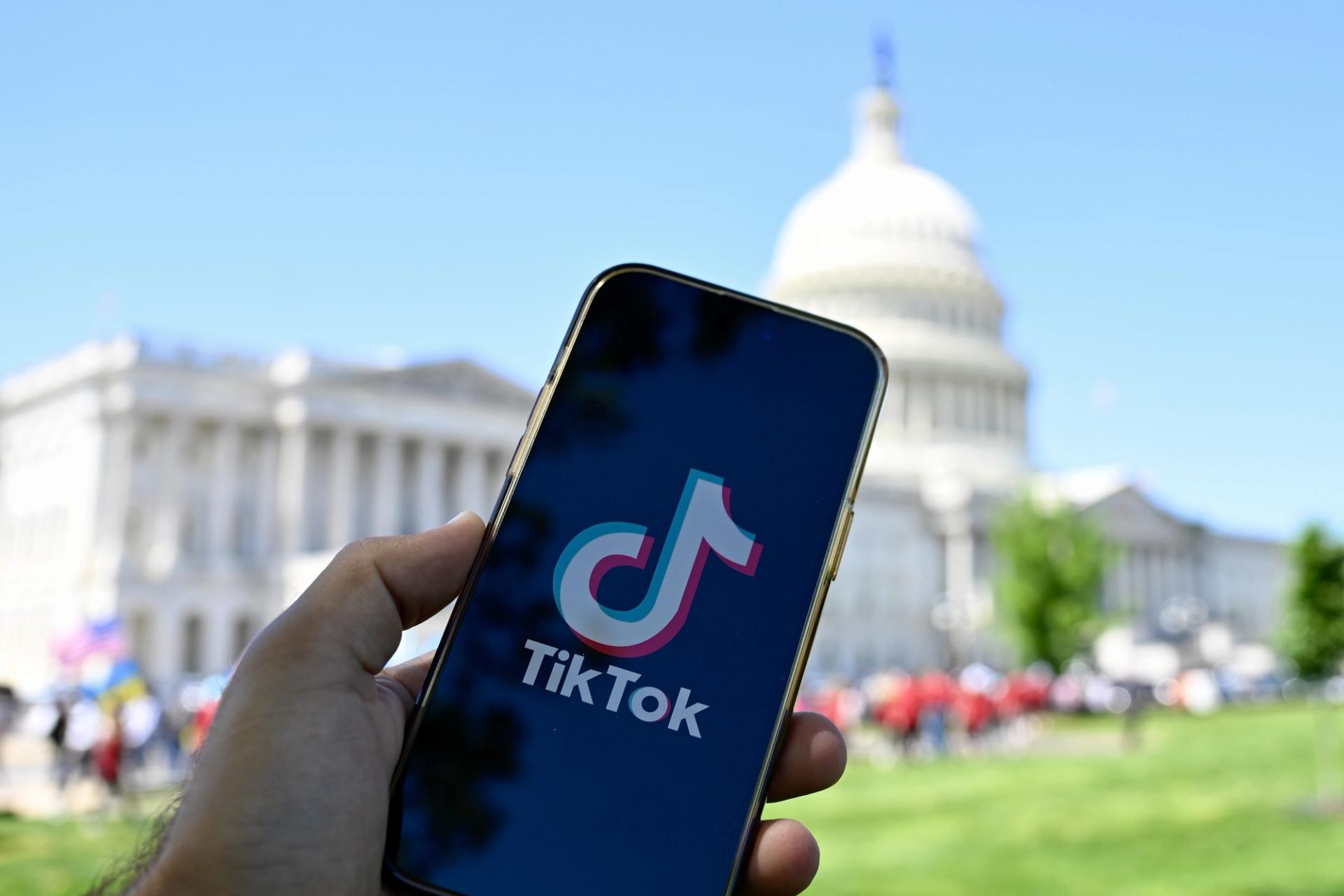
Sign up for Semafor Flagship: The daily global news briefing you can trust. Read it now.
Your Email addressThe News
The US Senate has passed legislation that would force ByteDance to sell TikTok within a year or face a national ban, sending the measure to President Joe Biden’s desk. He is expected to sign it.
The White House-backed legislation was approved as part of a broader national security package — combining Ukraine and Israel aid — that passed the House in a bipartisan vote over the weekend. Proponents of the TikTok measure say that the popular video app’s Chinese ownership poses a national security threat.
Tuesday’s Senate vote was 79-18.
Know More
Under the measure, ByteDance would have up to 360 days to divest TikTok or face an effective ban within the US.
A TikTok spokesperson last week characterized the legislation as an assault on free speech, signaling a likely legal challenge on First Amendment grounds.
“It is unfortunate that the House of Representatives is using the cover of important foreign and humanitarian assistance to once again jam through a ban bill that would trample the free speech rights of 170 million Americans, devastate 7 million businesses, and shutter a platform that contributes $24 billion to the U.S. economy, annually,” the spokesperson said.
Bloomberg reported earlier this week that TikTok’s head of public policy told employees in a memo that the company would “move to the courts for a legal challenge” once the measure is signed into law.
The legislation represents a rare bipartisan achievement in Congress, where there is intense scrutiny of the Chinese government among members of both parties.
An earlier version of the legislation introduced by the House China select committee leaders, Republican Rep. Mike Gallagher and Democratic Rep.Raja Krishnamoorthi, would have forced a sale within 180 days; the adjustment to the bill helped it gain support from a key Democratic senator, Commerce Committee Chairwoman Maria Cantwell, who endorsed it last week.
Semafor Signals
Tesla reports 55% drop in profit as Chinese competitors dominate
Insights from Yahoo Finance, Business Insider, and Semafor
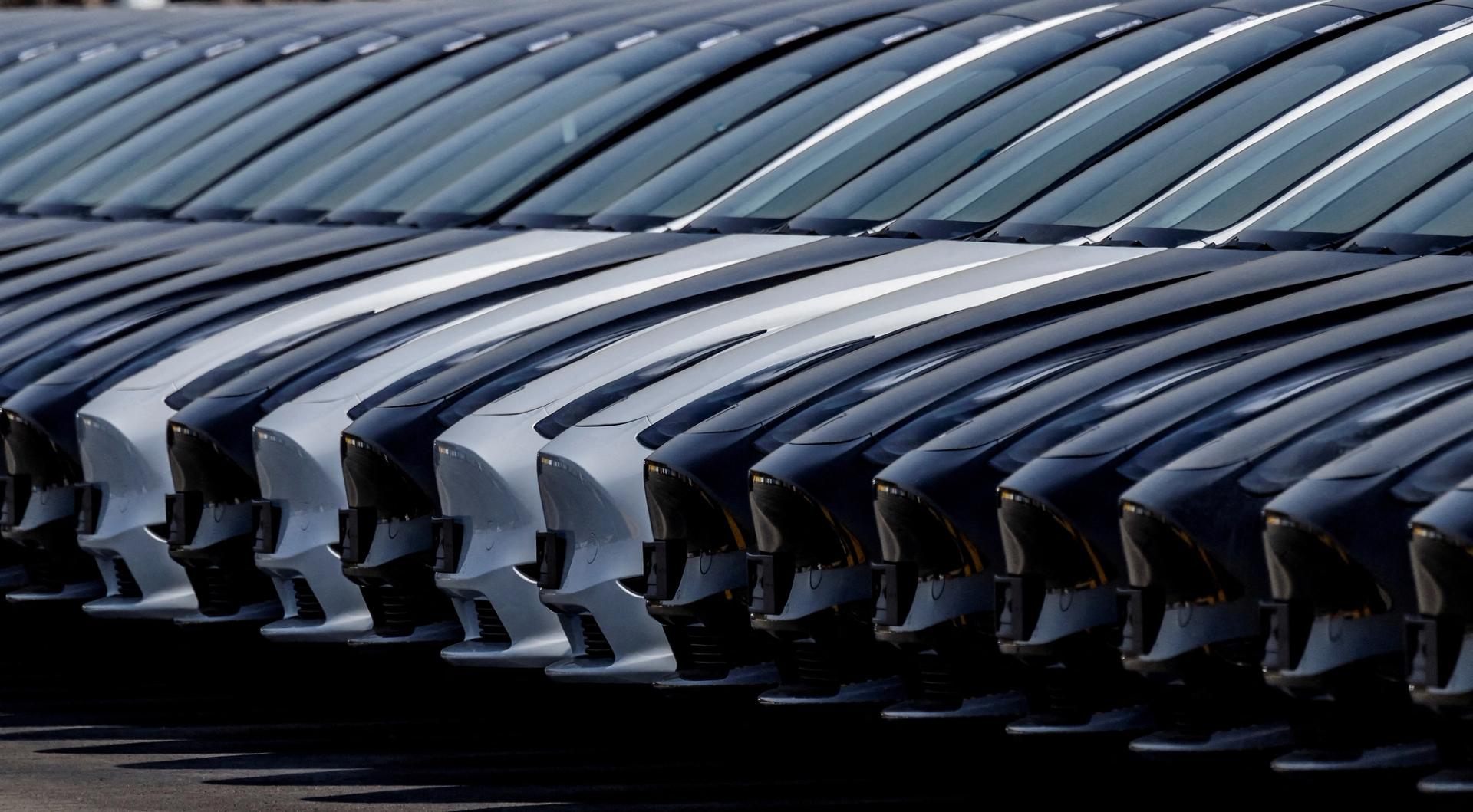
Sign up for Semafor Business: The stories (& the scoops) from Wall Street. Read it now.
Your Email addressThe News
Tesla on Tuesday reported a 55% drop in quarterly profit compared with the first quarter of 2023, yet another sign that the once-dominant electric carmaker is struggling amid intense competition from Chinese automakers.
The EV giant posted revenues of $21.3 billion in Q1, equating to a 9% drop and its biggest year-on-year fall since 2012.
Analysts began forecasting trouble for Elon Musk’s EV empire after Tesla announced price cuts in China at the weekend. Similar price cuts were seen in the U.S. and Germany as sales slumped in Q1, and the company recently announced a 10% reduction in its global workforce.
But Musk appeared confident that Tesla can stay cash-positive even with more price cuts during Wednesday’s investor call.
“If you have a great product at a great price, the sales will be excellent,” he said.
Investors have become increasingly worried about the sustainability of Musk’s business plans. Reuters this month reported that Tesla had scrapped plans for its cheapest EV yet — seen as critical to compete with Chinese competitors — though Musk denied the report.
He instead unveiled plans for a new robotaxi that features no steering wheel, another move which has unnerved employees and is ”[plunging] Tesla into chaos,” Bloomberg reported.
Tesla is accelerating the production of “new vehicles, including more affordable models,” according to a memo in a presentation to shareholders.
That announcement excited investors: despite Tesla’s year-to-date share price closing down 42% at the end of trading, the after-hours stock price rose by as much as 9%. One analyst called it a sign the company is “listening” to investors’ concerns.
Musk told investors it is “helpful” that other self-driving carmakers are already pursing full regulatory approval and are “cutting a path through the regulatory jungle.” When Tesla releases its own software, he doesn’t believe there will be “significant regulatory barriers,” he said.
SIGNALS
Will shareholders pay Musk $55.8 billion to build AI?
After surrendering a big portion of his Tesla ownership to raise cash for his $44 billion purchase of X in 2022, Musk is now attempting to win shareholder support for a $55.8 billion pay package that would see him attain a 25% ownership stake in the the carmaker, up from his current 13%. Musk has said he sees a stake of this size as crucial to helming the company’s transition into a leader in AI and robotics, though he will likely still pursue these ambitions outside the Tesla structure if he does not get the 25% threshold, Yahoo Finance reported. Whether shareholders approve that pay package — effectively endorsing the AI track — will be dependent on the firm’s Q1 performance, which one analyst called “one of the most important moments in the company’s history.”
Tesla’s marketing tactics raise eyebrows
Among the global layoffs at Tesla was a newly formed US marketing team, Bloomberg reported, yet another strategic decision that appears to go against the desires of shareholders worried about slumping sales. The company had long resisted traditional advertising on television, radio, and online, relying instead on word-of-mouth for sales, but that has changed over the past year as the threat from competitors increases, Semafor previously reported. Tesla’s move to use celebrities including Katy Perry to promote its Cybertruck was meant to turn the EV into a status symbol, according to Business Insider. However the strategy backfired after the truck was plagued by performance issues and a massive recall, leaving many unimpressed: Perry’s fans slammed the singer for promoting the problem-ridden truck.
Apple also falls victim to Chinese competitors
Tesla is not the only tech giant suffering amid intense competition from China: Apple’s iPhone shipments dropped nearly 10% this Q1, with shipments to China plummeting by 19% as competitors like Huawei and Xiaomi took over much of its market share, CNBC and Reuters reported. The decline has pushed Samsung to reclaim its title as holder of the largest global market share for smartphones, accounting for about 20.8% of sales compared with Apple’s 17.3%, Reuters reported. Chinese smartphones — while still cheaper than iPhones — are gaining traction as more premium design and software features lead customers to switch over. “Huawei’s comeback has directly impacted Apple in the premium segment,” one analyst told Reuters.
Semafor Signals
Talks for the first global plastics treaty underway in Ottawa
Insights from Eco Business, Bloomberg, Reuters
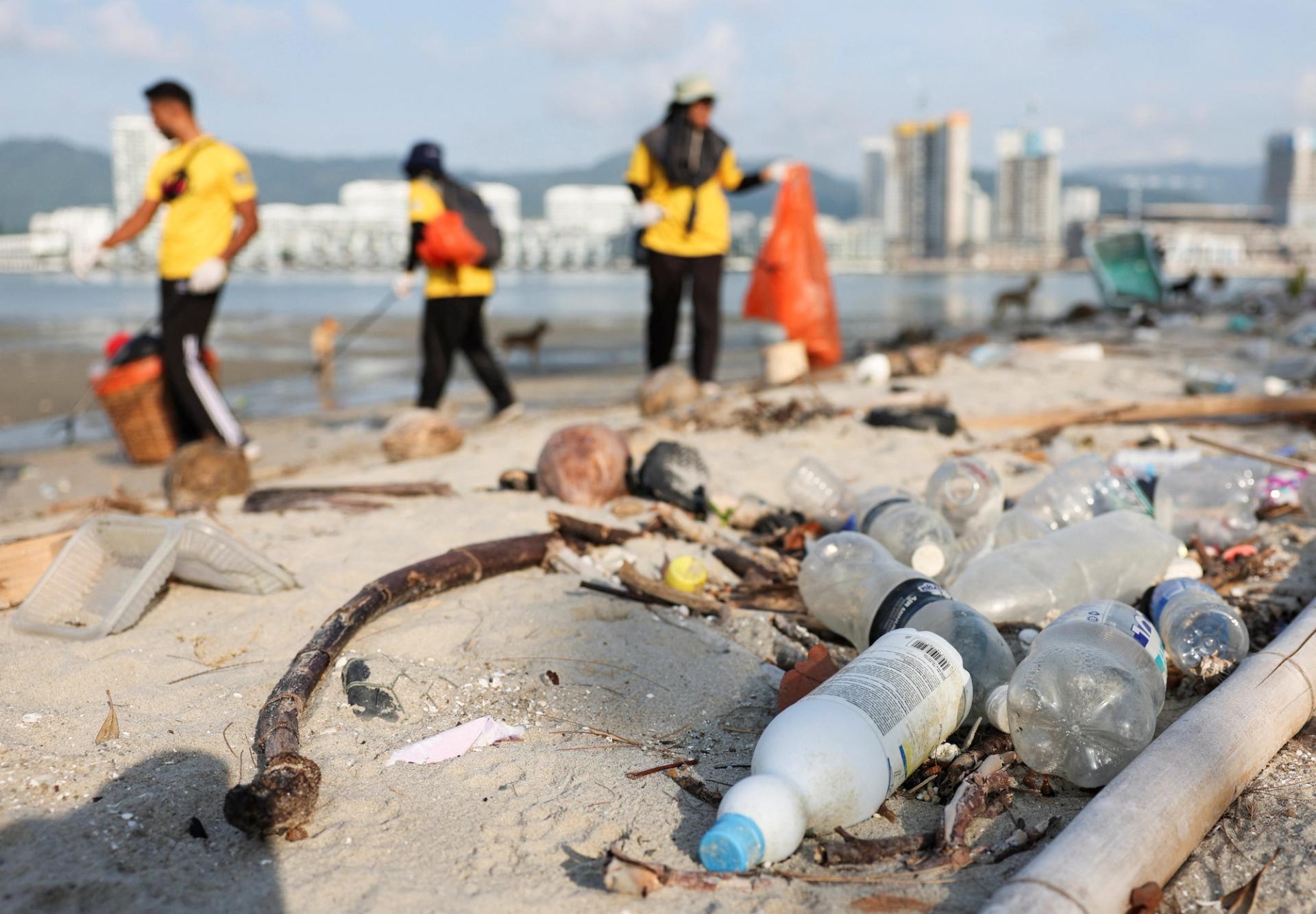
Sign up for Semafor Flagship: The daily global news briefing you can trust. Read it now.
Your Email addressThe News
Thousands of negotiators representing more than 170 nations, researchers, civil society groups and businesses gathered in Canada this week to draft the first global treaty to reduce the growing problem of plastic pollution.
Plastics currently account for 5% of climate emissions globally, and reports predict that without action this could increase to 20% by 2050.
Nations agreed at the UN Environment Assembly in March 2022 to work together to reach a legally binding treaty by the end of 2024.
Countries are divided, however, on whether the agreement should focus on waste management and recycling or more ambitious targets such as limits on production and the phasing out of certain types of plastic.
The talks follow a contentious round of treaty negotiations in Nairobi, where countries including Saudi Arabia disagreed over language about production limits. The last set of talks will take place in Busan, South Korea in December.
SIGNALS
Treaty should set out binding reductions, not voluntary commitments
Applying lessons from major global agreements of the past will help to ensure the success of the plastics treaty, a professor of environmental science wrote for Eco Business. The Montreal Protocol of 1989 proved powerful in phasing out ozone-depleting chemicals because it set out mandatory timetables and legally binding reductions, Dr Jorge Emmanuel wrote.
By contrast, agreements that rely on voluntary commitments or carbon offset schemes — up to 94% of which are worthless, according to scientific studies — are less likely to generate results. “We need to have binding global reduction targets under mandatory timetables without free riders, and those targets must be consistent with the Paris Agreement’s goal of limiting global warming to 1.5°C,” Emmanuel warned.
Petrochemical lobbyists seek to influence treaty talks
While oil giants such as Shell and ExxonMobil have expressed support for the treaty, Reuters reported that behind the scenes, petrochemical lobbyists and trade groups have attempted to sway discussions away from production caps that might limit their output.
“Plastic makers want UN delegates to focus instead on waste collection, recycling and nascent waste-to-fuel technologies, areas that don’t impact their businesses,” the report stated. However, many advanced plastics projects fail to become commercially viable and the processes involved can generate toxic waste that ends up in waterways.
The role of oil lobbyists in influencing the Ottawa talks has troubled scientists, with one professor of environmental toxicology arguing in Nature that policymakers should move to insulate scientific bodies from corporate interference.
EU hopes to take the lead on plastics regulations
The European Commission has passed sweeping packaging and plastics regulations in the past four years, specifically targeting single-use plastics and reducing waste volumes. These domestic regulations could see the bloc lead by example and “add weight and leadership to international negotiations,” one plastics policy analyst told Bloomberg. The scale of Europe’s new rules could also positively influence corporate policies: “If some big companies are starting to change the way they produce their packaging for the EU market, they may also do the same for other markets,” the coordinator of Break Free from Plastic Europe, an environmental group, said.
Semafor Signals
US set to ban noncompete agreements for workers
Insights from NPR, Axios, and The American Prospect
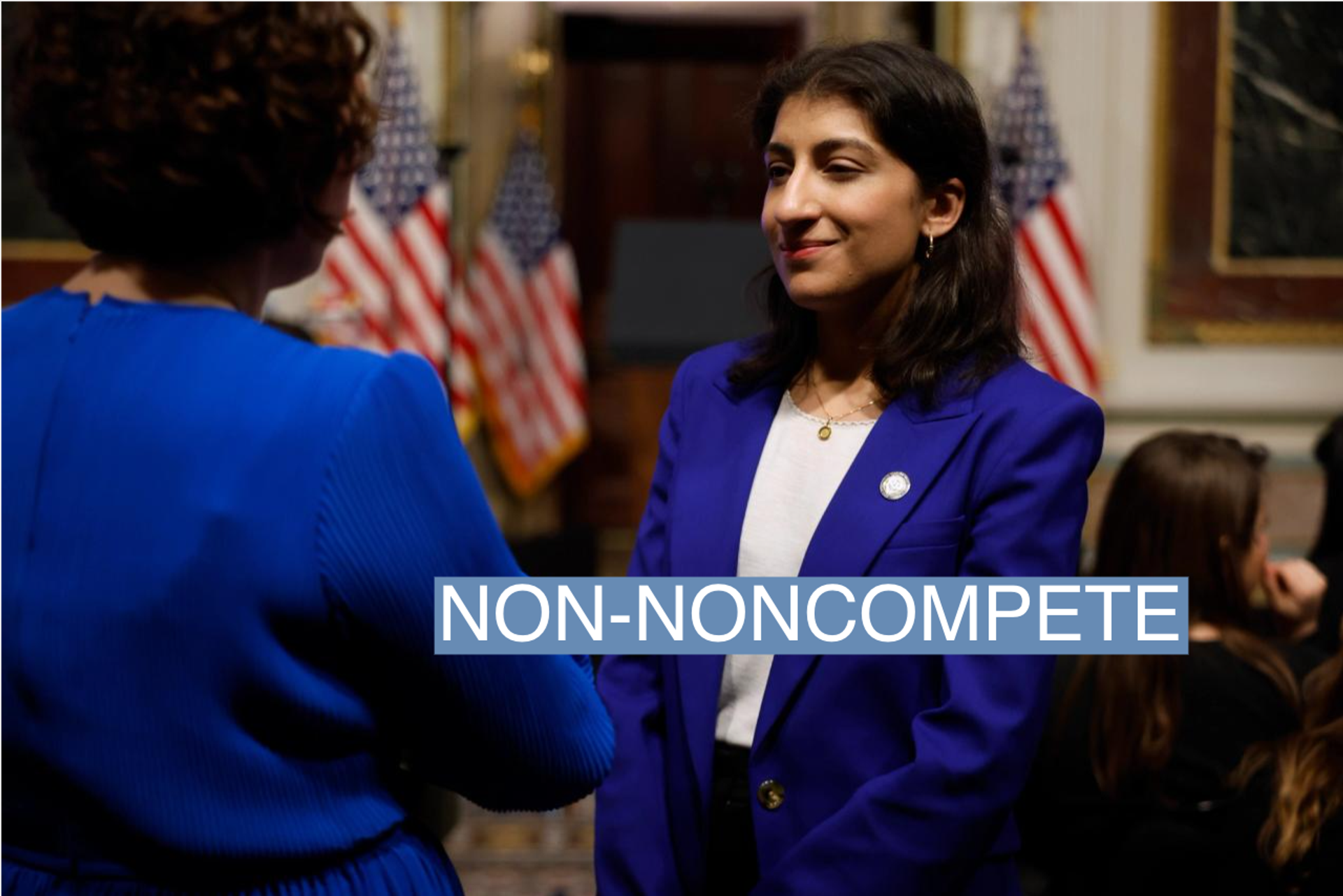
Sign up for Semafor Flagship: The daily global news briefing you can trust. Read it now.
Your Email addressThe News
The US Federal Trade Commission voted Tuesday to ban noncompete agreements for almost all American workers, ruling that they unfairly block employees from changing jobs and restrict competition.
Noncompetes typically prevent workers from leaving their company for a competitor or founding a competing business. The Biden administration has argued that these agreements stifle entrepreneurship, harming both workers and the US economy writ large.
About one in five American workers are bound by noncompetes, according to the FTC. The commission estimated that if the agreements were banned, allowing more workers to leave jobs and earn more money, the earnings of the US workforce could increase by up to $296 billion per year.
“The freedom to change jobs is core to economic liberty and to a competitive, thriving economy,” FTC Chair Lina Khan said in a statement when the proposed rule was initially introduced.
SIGNALS
Businesses say noncompetes are vital to protect trade secrets
The US Chamber of Commerce and other business groups oppose a ban on noncompetes, saying the agreements help both workers and companies by protecting trade secrets, which allows businesses to invest more in training their workforce. The chamber argued that under a ban, “companies may be less willing to pour large amounts of time and money into research and development,” because they may fear employees will take that knowledge to a competitor, NPR reported.
Noncompetes were once used to keep high-level executives from “jumping ship to rivals and taking insider knowledge with them,” Axios reported, but they’re now common even for low-wage workers who have little to no access to trade secrets. Cases litigated over the agreements have involved pharmaceutical workers, janitors, and even yoga studios.
Chamber of Commerce plans to sue, threatening FTC’s authority
The US Chamber of Commerce has said it will sue to overturn the rule, arguing that the FTC overstepped its authority and opened up “a Pandora’s box where this commission or future commissions could be literally micromanaging every aspect of the economy.”
But if the courts step in to roll back the ban, they could also restrict the FTC’s rulemaking authority more broadly, making it difficult for the commission to curb other practices it deems harmful to competition. While a legal opinion could restrict the commission’s rulemaking authority, it would “at least give the agency clarity on its own powers,” The American Prospect wrote.
Semafor Signals
UK announces ‘biggest defense budget boost in a generation’
Insights from The Economist and The Guardian
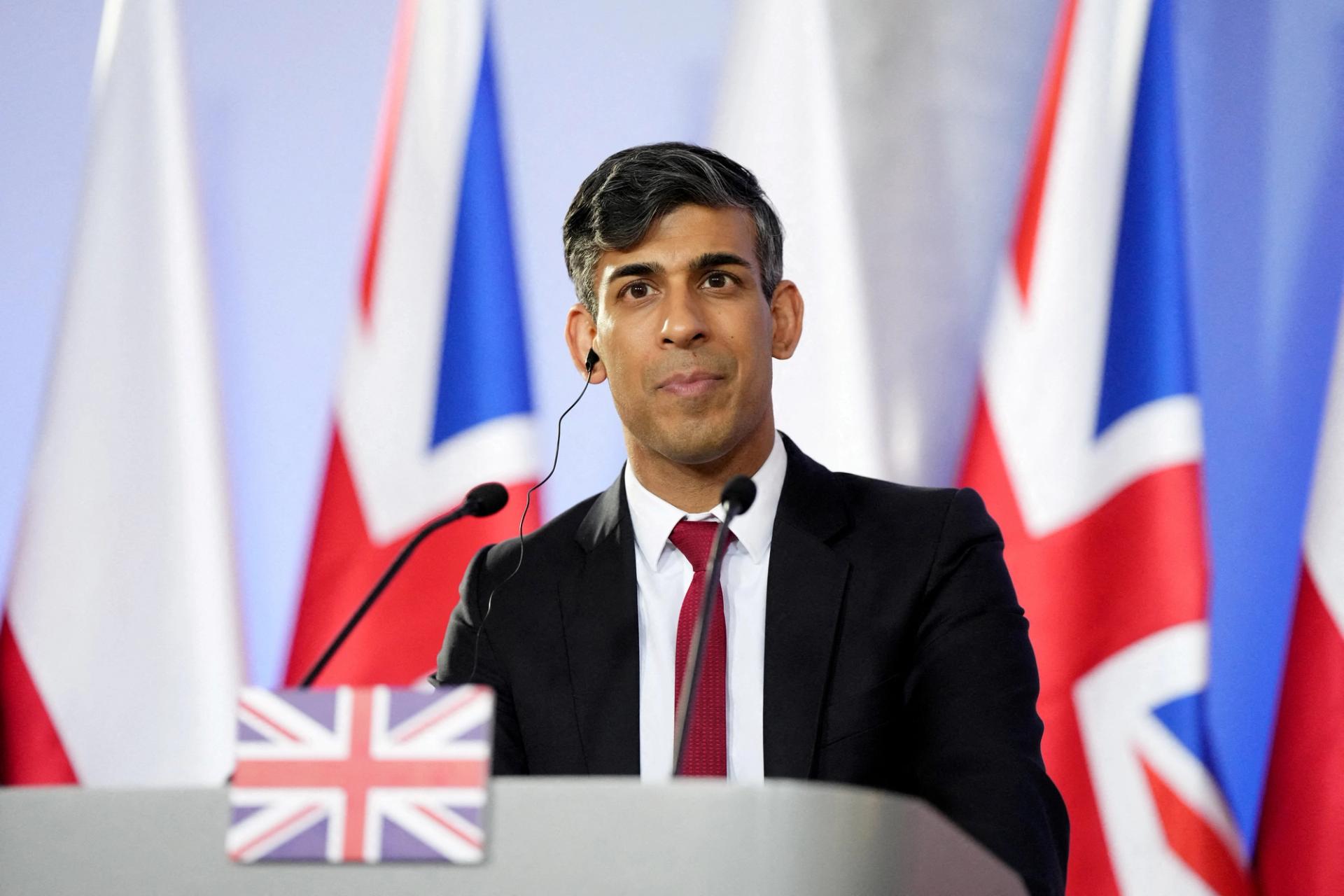
Sign up for Semafor Principals: What the White House is reading. Read it now.
Your Email addressThe News
UK Prime Minister Rishi Sunak pledged to raise defense spending to 2.5% of economic output by 2030, in what he described as “the biggest strengthening of our national defense for a generation” amid a rising number of conflicts around the world.
The plan will raise the country’s defense spending by more than £75 billion ($90 billion) over the next six years, and comes after months of pressure from conservative MPs and European partners.
At a press conference in Warsaw, Sunak said the pledge to raise defense spending from the current 2.32% of GDP would put the UK on “a war footing,” allowing the UK to reinvigorate its defense industrial base and modernize its armed forces.
“In a world that is the most dangerous it has been since the end of the Cold War, we cannot be complacent,” Sunak said. “As our adversaries align, we must do more to defend our country, our interests, and our values.”
The prime minister also announced an extra $600 million in Ukraine aid, which will provide Kyiv with four million rounds of ammunition, 400 vehicles, and an unspecified number of long-range Storm Shadow missiles.
SIGNALS
Tight budgets put the squeeze on spending increases
While the defense pledge was launched to much fanfare, policy analysts were quick to raise questions about how it would be paid for. “This is a lot easier to announce than deliver,” the Resolution Foundation’s Torsten Bell wrote on X, noting that it remains unclear how the pledge will be funded given the UK’s existing budget deficit. The government will likely have to make cuts in other spending areas to finance the defense surge, said The Institute for Fiscal Studies’ Ben Zaranko.,But, as The Guardian noted, the defense pledge includes items such as money spent on Ukraine aid, meaning that the core budget increase for the Ministry of Defense is less that it might appear at first glance.
Conservatives unlikely to remain in power to see pledge through
While the ruling Conservatives made the spending pledge, they are unlikely to remain in power long enough to see it through, making Labour the party most likely to decide the country’s future defense budget. The main opposition party commands a dominant lead in the polls, with a general election expected by the end of this year. Labour leader Keir Starmer has said he supports spending 2.5% of GDP on defense, but has promised a major review if his party takes power to see how money is best spent. Labour’s Shadow Defense Secretary John Healey reacted with caution to the plan. “Since 2010, the Conservatives have wasted more than £15 billion mismanaging defense procurement, shrunk the Army to its smallest size since Napoleon, missed their recruitment targets every year, and allowed morale to fall to record lows,” he wrote on X.
Semafor Signals
More than one in five cars sold in 2024 will be electric: IEA
Insights from Foreign Policy, USA Today, and New Geek

Sign up for Semafor Net Zero: The nexus of politics, tech, and energy. Read it now.
Your Email addressThe News
Despite an ongoing slump in global sales of electric vehicles, more than one in five cars sold worldwide this year will be electric, according to a new International Energy Agency (IEA) report released Tuesday.
European battery EV sales dropped 11.3% year-on-year in March, the Financial Times reported, but the IEA said that EV sales are likely to remain robust in 2024, reaching around 17 million by the end of the year.
The agency forecasted that almost one in five cars on US and European roads will be electric by 2030, and in China — which will be the most significant contributor to global EV sales growth — one in three will be electric.
Still, non-Chinese EV firms are battling headwinds that could complicate the transition. Tesla on Tuesday is expected to report a significant drop in operating profit as it faces fierce competition from Chinese EV makers.
SIGNALS
German automakers’ approach to competing with China is ‘fiction’
German automakers are some of the loudest voices against raising EU tariffs on EVs and EV parts, arguing that cutting them instead would push Germany to become more competitive. Executives at Volkswagen and BMW believe that they need Chinese EV battery parts to keep their costs low until they can make their own, but the idea that German automakers can regain competitiveness in China is “fiction,” argued Foreign Policy’s James Crabtree. Beijing has “no interest in allowing German car companies to thrive in its market,” he wrote, noting that German automakers are losing out on building stronger ties with Japan and India by prioritizing recovery in China.
EV resale prices in US are hampering popularity
Plummeting EV resale values in the US have become a major “roadblock” in the expansion of EV market share across the country, USA Today reported. Over the past year, average prices for used EVs dropped by 32% compared to 3.6% for gas-powered vehicles. Coupled with higher price tags compared to Europe and Asia and inadequate charging infrastructure, the resale prices are yet another factor that “aggravate buyers’ worries that an EV isn’t worth the price or the potential headaches,” USA Today wrote. The resale value slump was largely triggered by Tesla slashing prices in an effort to remain more competitive. “Musk cutting prices made people feel like they owe $50,000 on their Tesla and now, it’s only worth $40,000,” one analyst said.
Chinese consumers are ‘numb’ to Tesla price cuts
China’s rapid rollout of cheap EVs is largely driving the IEA’s optimistic forecast, but Tesla’s market share is expected to drop in the country despite some of the most significant price cuts compared to its competitors, according to New Geek, a Chinese tech consumer blog. Between 2019 and 2023, Tesla’s average price in China dropped by 22%, leading to a 392% increase in sales, but Chinese EV giant BYD slashed its prices by 7% with a 1,217% sales increase during the same time period. “It is clear that consumers are becoming increasingly numb to Tesla’s price cuts,” New Geek wrote. While Tesla’s vehicles still have a better range compared to BYD’s, the blog suggested that nationalist pride is behind the fervor for BYD cars in China.
Semafor Signals
US prepares to sanction China over its support for Russian war effort
Insights from the Atlantic Council, The Wall Street Journal, and the BBC
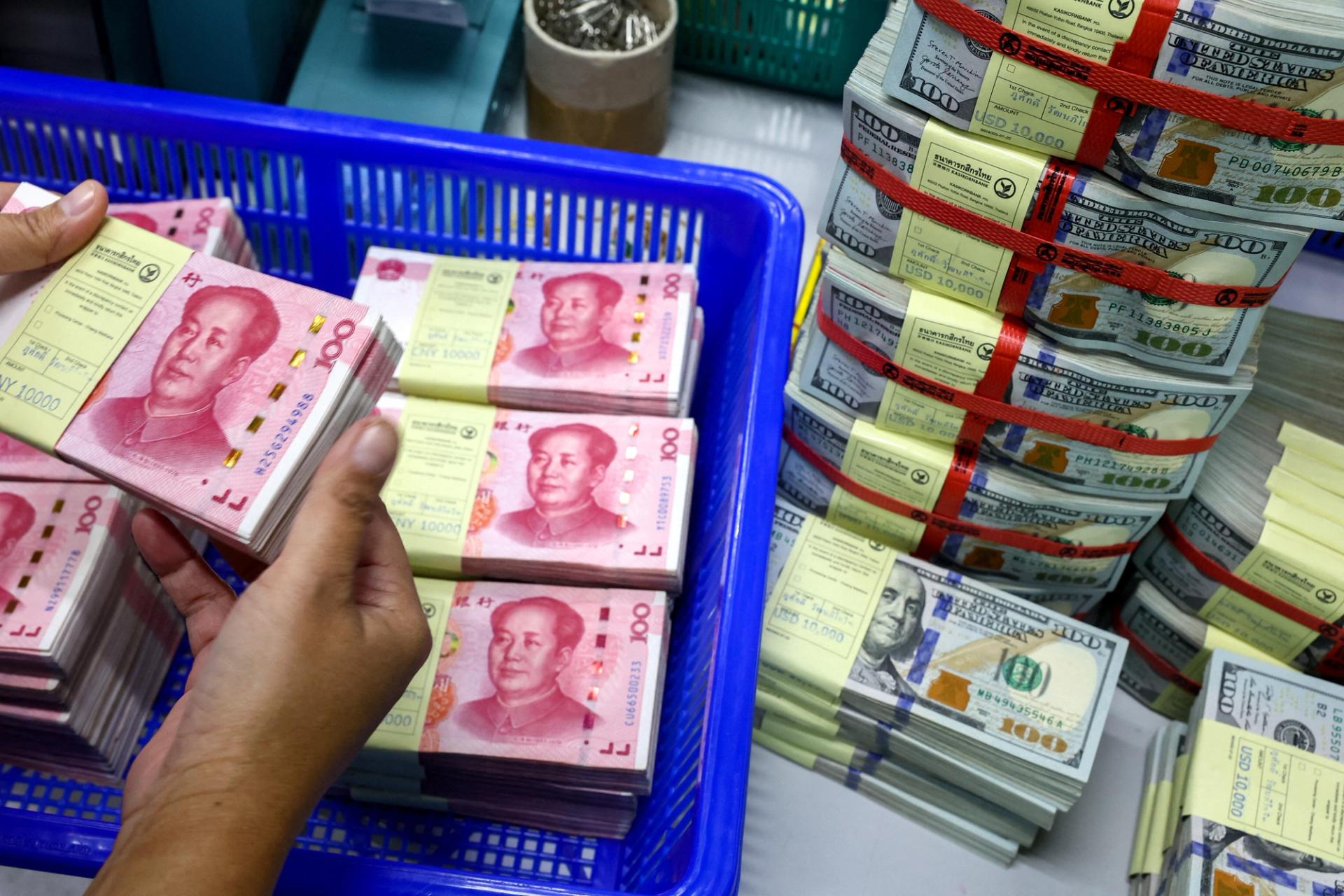
Sign up for Semafor Principals: What the White House is reading. Read it now.
Your Email addressThe News
The US is preparing to sanction some Chinese banks in an attempt to curb Beijing’s financing of Russia’s war in Ukraine, The Wall Street Journal reported.
The proposed sanctions come as US Secretary of State Antony Blinken is set to travel to China this week.
Washington has been increasing pressure on Beijing regarding its facilitation of exports to Moscow, and views sanctions as an escalatory measure if China does not respond to talks.
SIGNALS
Threat of sanctions could be enough to exert pressure on Beijing
Previous threats by Washington to sanction Chinese financial institutions proved enough to shift Beijing’s behavior, The Wall Street Journal noted. Last year, an executive order by US President Joe Biden authorizing sanctions on any bank that aided the Russian military created “bottlenecks” on transactions between China and Russia, one expert told the Journal. As Chinese banks feared reprisals, they backed out of facilitating deals that could lead to sanctions, Alexandra Prokopenko, a fellow at the Carnegie Russia Eurasia Center think tank, said. But that threat has diminished in recent months as smaller banks that don’t use the US dollar — and so wouldn’t be struck by sanctions — have become more prevalent in Russia-China transactions. “Both Russians and Chinese are constantly adapting to the new conditions,” she said.
China has developed some resistance to possible sanctions
China also faces the threat of sanctions from Group of Seven nations if it carries out military provocations in Taiwan. Beijing has been preparing for such a scenario, an Atlantic Council report noted, and has created some safeguards. For instance, China is creating financial networks dominated by the yuan, rather than the US dollar, adding a small shield against any punitive actions. “A rapidly growing number of domestic and crossborder payment projects are being designed with the possibility of Western sanctions in mind,” the report found. Meanwhile, if Beijing responds to sanctions, it is unlikely to do so with tit-for-tat measures, the authors said. Instead, it “will target sectors where it can inflict asymmetric pain, particularly through the use of export controls or trade restrictions on critical goods such as rare earths.”
Chinese firms nearshoring in Mexico to avoid US sanctions
Chinese companies have set up factories and logistics hubs in northern Mexico in recent years, part of an attempt to circumvent US sanctions or tariffs on their products, the BBC reported. Analysts believe that trend could last long-term, since the trade war between the US and China doesn’t show signs of cooling. “While the Chinese origin of the capital coming into Mexico may be uncomfortable for the policies of some countries … according to international trade legislation, those products are, to all intents and purposes, Mexican,” Juan Carlos Baker Pineda, Mexico’s former vice-minister for external trade, told the broadcaster.
Sign up for Semafor flagship
In your inbox, twice every weekday. Read it now.
Recommend
About Joyk
Aggregate valuable and interesting links.
Joyk means Joy of geeK